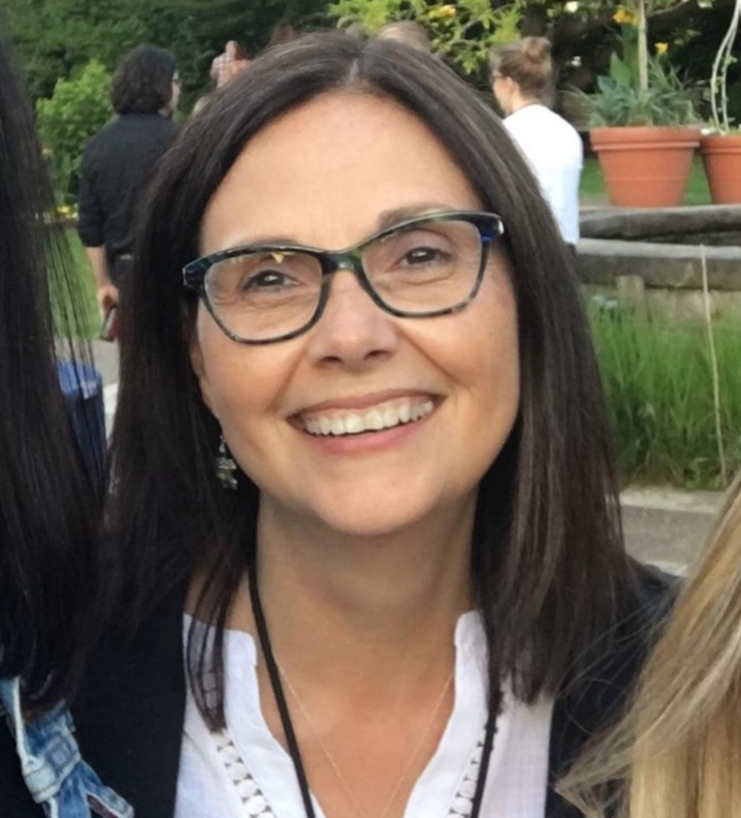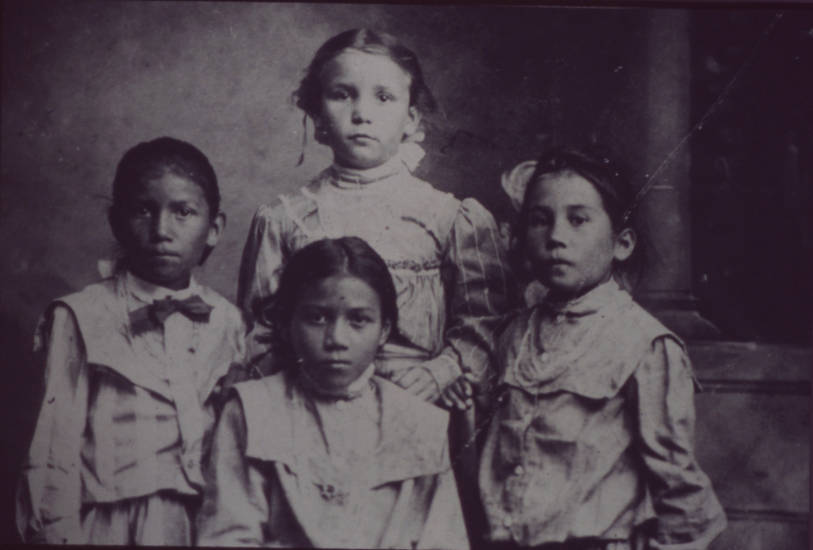Twenty years after they first spotted the name of a relative on a tombstone at one of the nation’s most infamous Indian Boarding Schools, two Catawba Nation tribal members are preparing to finally bring him home.

On Friday, June 17, Susan George and Brooke Bauer will drive from their home on the Catawba Nation Reservation in South Carolina—90 miles Southeast of Charlotte, North Carolina—to the former grounds of the Carlisle Indian Industrial School in Pennsylvania. They will receive the remains of their relative, Wade Ayers(sometimes spelled ‘Ayres’), and bring him home for the first time in 118 years.
He is among eight Indigenous children whose remains will be returned this summer by the U.S. Army, which controls the Carlisle cemetery.
Ayers arrived at the school in 1903 at 13 years old, and died four and a half months later, in January 1904, of “vaccine fever,” according to his student record. He weighed only 70 pounds.
“Wade Ayers, Catawba, of South Carolina, was laid to rest last Sunday. He was a boy of lovable disposition and with a keen sense of justice and right,” an obituary in the school’s student newspaper read. “After vaccination he took cold in his arm, which with serious complications ended his life.”
George, 75, and Bauer, 54, first visited the Carlisle barracks in 2002 when they were in the area for other business. “I wanted to go to Carlisle because my granny had gone to school there,” George told Native News Online. Bauer, an assistant professor of history at the University of Tennessee at Knoxville, also had family who were sent to Carlisle.
“When I first saw Wade’s headstone, I kind of got a sick feeling in my stomach,” Bauer told Native News Online. “My children were still relatively young, and all I could imagine was my son or daughter being sent away like that. Wade was only 13 years old, and he died alone up here. I can’t even imagine how scared he must have been.”
After the Northern Arapaho Tribe in 2017 paved the way for the Army to begin returning some of the nearly 200 children who died and were buried at Carlisle, George and Bauer got to work with their tribal government to bring Wade home.
After five years of pushing for the Catawba Nation to coordinate Wade’s return, they learned of the Army’s policy to return interred Indigenous youth only to their next of kin. Wade will go home to 93-year-old Pat Threatt, his niece, though George and Bauer will travel to Carlisle for the disinterment ceremony on Threatt’s behalf. (George is related to Wade through her great-great-grandmother, who was an Ayers before her marriage).
On June 24, the Catawba Nation will host a visitation ceremony at their longhouse for tribal citizens to pray and share stories. The following day, the tribe will rebury Wade at their local cemetery.
George said she expects Wade’s homecoming to show others that “you could just be a regular tribal member to get something like this done.”
Additionally, it will serve to remind South Carolinians and beyond that the Catawba Nation, which has 3,500 enrolled tribal citizens, still exists, as it has for 6,000 years.
“They don't even realize that we’re still living down here,” George said.
Between 1893 and 1916, at least 11 other Catawba Nation children were sent to Carlisle, according to Bauer’s research. “A lot of the Catawba children that were sent to Carlisle if their mother was deceased,” she said. “There was this American way of thinking that a father couldn't raise his children, not understanding that the whole family raises the children.” Other Catawba children were sent to the Cherokee Boarding Schools in Oklahoma.
 A photo of four Catawba girls sent to Carlisle in August 1904. Mary Ayers, center back row, was Wade's sister; the other three, all sisters, right to left: Lavinia Harris, 9; Edith Harris (Susan George's grandmother), 11; Artemis Harris, 8.
A photo of four Catawba girls sent to Carlisle in August 1904. Mary Ayers, center back row, was Wade's sister; the other three, all sisters, right to left: Lavinia Harris, 9; Edith Harris (Susan George's grandmother), 11; Artemis Harris, 8.
Between June 11 and the first week of July, the Army will exhume the remains of seven other Indigenous children and return them to their next of kin. They include Anastasia Ashouwak from the Alaskan Aleutian islands; Raleigh James from the Washoe tribe in the Lake Tahoe area, Anna Vereskin from the Alaskan Aleutian islands; Ellen Macy from the Umpqua Tribe in Oregon, and Frank Green from the Oneida tribe.
More Stories Like This
Committee Advances 20% Increase to Navajo Child Support GuidelinesNavajo Committee Advances $84M Transportation Improvement Plan
NCAI Passes Two Emergency Resolutions on Immigration Enforcement Activities
Chickasaw Lighthorse Police Officer named Indian Country Law Enforcement Officer of the Year
Indian Gaming Association Rallies Broad Coalition Against Sports Event Contracts It Calls Illegal Threat to Tribal Sovereignty
Help us defend tribal sovereignty.
At Native News Online, our mission is rooted in telling the stories that strengthen sovereignty and uplift Indigenous voices — not just at year’s end, but every single day.
Because of your generosity last year, we were able to keep our reporters on the ground in tribal communities, at national gatherings and in the halls of Congress — covering the issues that matter most to Indian Country: sovereignty, culture, education, health and economic opportunity.
That support sustained us through a tough year in 2025. Now, as we look to the year ahead, we need your help right now to ensure warrior journalism remains strong — reporting that defends tribal sovereignty, amplifies Native truth, and holds power accountable.
 The stakes couldn't be higher. Your support keeps Native voices heard, Native stories told and Native sovereignty defended.
The stakes couldn't be higher. Your support keeps Native voices heard, Native stories told and Native sovereignty defended.
Stand with Warrior Journalism today.
Levi Rickert (Potawatomi), Editor & Publisher


